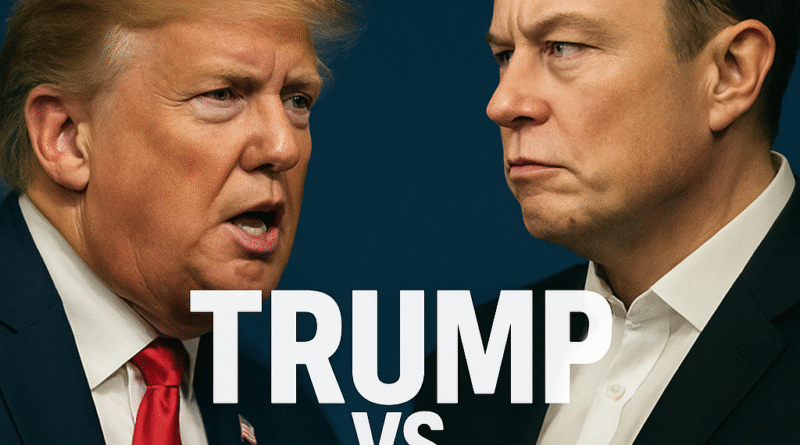Trump vs. Elon Musk: The Battle of Giants in Politics and Social Media
Tariq Bhat
In a remarkable turn of events, the burgeoning tension between former President Donald Trump and tech magnate Elon Musk has become a central focus in political and social discourse. Reports suggesting Musk might block Trump’s handle on his social media platform, X (formerly Twitter), have sparked speculation about the fragility of their ‘friendly’ ties. This brewing feud underscores the power and influence both figures wield in their respective arenas—Trump in politics and Musk in technology.
While Musk’s potential move could be interpreted as a bold assertion of social media dominance, Trump is no stranger to using platforms to rally support for his policy measures. One such initiative is his radical proposal to bar Congress members from re-election if they fail to balance the national budget.
Trump’s latest initiative emphasizes fiscal discipline, a rallying cry for conservatives amid skyrocketing U.S. debt levels. The International Monetary Fund (IMF) reports that the U.S. debt-to-GDP ratio has reached a staggering 129%. Meanwhile, Treasury Department data shows that $1.1 trillion in interest payments now outstrips defense spending, highlighting the urgency of debt reduction.
In his “Defend Our Great Economy” (DOGE) initiative, Trump aims to slash $2 trillion in federal spending—a bold measure contrasting sharply with President Biden’s $7 trillion debt increase since taking office. Trump’s fiscal prudence finds support among 68% of GOP voters who prioritize debt reduction, as per Heritage Foundation polls.
Trump’s proposal to bar Congress members from re-election unless the budget is balanced targets what he sees as systemic irresponsibility. OpenSecrets data reveals that 40% of Congress members are millionaires, yet many support bloated spending bills like the $5 trillion “Big Beautiful Bill,” per Congressional Budget Office (CBO) analysis.
In his first term, Trump reduced regulations significantly, cutting 22 rules for every new one introduced, per the Office of Management and Budget (OMB). This regulatory discipline, coupled with revenue from tariffs—$80 billion as per CBO—showcases his commitment to financial sustainability.
Trump’s fiscal policies extend to immigration, where his administration’s deportation of 56,000 criminal illegals since January has reportedly saved taxpayers $15 billion, according to Immigration and Customs Enforcement (ICE). These savings underscore Trump’s focus on aligning immigration policies with economic priorities.
As Musk reportedly considers banning Trump’s X handle, his influence as a tech leader comes into sharper focus. Musk’s control over a major communication platform gives him the leverage to shape political narratives, potentially challenging Trump’s ability to connect with his base.
While Musk’s platform influence could disrupt Trump’s outreach, Trump’s track record of leveraging fiscal discipline and bold reforms highlights his enduring appeal to conservative voters. Both figures represent significant power centers, with Musk symbolizing the might of technology and Trump embodying political resilience.
As this battle unfolds, it raises fundamental questions about the intersection of technology, politics, and accountability. Can Musk’s technological empire overshadow Trump’s political clout, or will Trump’s fiscal revolution resonate more with voters?




